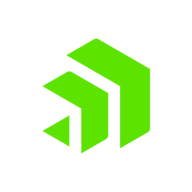

MongoDB Enterprise Advanced and MarkLogic are competitors in the database management domain. MongoDB Enterprise Advanced tends to have the upper hand in cost-effectiveness and support, while MarkLogic leads with its advanced features and higher price point.
Features: MongoDB Enterprise Advanced offers robust scalability, versatile data models, and strong query capabilities. MarkLogic provides powerful semantic data integration, real-time alerting features, and comprehensive search tools.
Ease of Deployment and Customer Service: MongoDB Enterprise Advanced is designed for cloud-focused deployment, emphasizing ease of integration and a wide range of available documentation and support resources. MarkLogic includes an on-premises option with a strong emphasis on data security, paired with expert customer service.
Pricing and ROI: MongoDB Enterprise Advanced provides competitive pricing models suitable for various organizational sizes, ensuring a good ROI through lower initial costs and flexible licensing. MarkLogic, while potentially higher in setup expenses, offers significant long-term returns through its advanced analytics and data management capabilities.
| Product | Market Share (%) |
|---|---|
| MongoDB Enterprise Advanced | 13.9% |
| MarkLogic | 2.2% |
| Other | 83.9% |
| Company Size | Count |
|---|---|
| Small Business | 35 |
| Midsize Enterprise | 13 |
| Large Enterprise | 38 |
MongoDB Enterprise Advanced is a comprehensive platform renowned for its scalability, user-friendliness, and high performance, underpinned by its flexible document-based storage and open-source model. JSON compatibility, clustering, and security elevate its standing among professionals.
The platform facilitates efficient data management through developer-friendly tools and a strong aggregation framework. MongoDB’s no-schema requirement, supported by community expertise, underlines its adaptability. While its sharding capabilities and affordably support large data volumes, there are aspects such as security enhancement and enterprise tool integration that need attention. Indexing and query optimization pose challenges, alongside high costs. Improvements in analytics and UI could advance its infrastructure further.
What are the key features of MongoDB Enterprise Advanced?Industries leverage MongoDB Enterprise Advanced for significant roles in data storage within IoT platforms, healthcare apps, public service monitoring, and big data analytics. Companies in logistics and telecommunications find it instrumental for business process management and video content management, benefiting from its seamless integration and unstructured data support.
We monitor all NoSQL Databases reviews to prevent fraudulent reviews and keep review quality high. We do not post reviews by company employees or direct competitors. We validate each review for authenticity via cross-reference with LinkedIn, and personal follow-up with the reviewer when necessary.